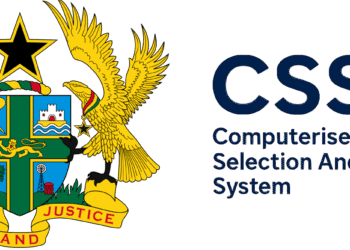The Head of SME Banking at Ecobank Ghana, Kingsley Adofo-Addo, has unraveled that a research conducted by McKinsey and the National Board for Small-Scale Industries (NBSSI) reveals that Micro, Small and Medium-sized Enterprises (MSMEs) is the largest employer in the country.
He made this revelation at a webinar conference organized by EcoBank Ghana Limited. According to him, about 80% of employment in the country is created by the MSME sector.
“In terms of employment creation, especially across Accra, the average is looking at about 47 to 50% in terms of employment creation and surprising relative to Ghana, 80% of employment is created by the MSME sector”.
“And if we look at it on the sub-sectoral basis, the Micro Sub-sector contributes 30%, the small, 20 and the medium 47% and again all together, they account for 8.3 million of employment populace in Ghana,” he said.
Additionally, he noted that over two million businesses are within the MSME sector.
“It is evident that MSMEs continue to play a critical role by providing critical goods and services, creating jobs, helping to reduce poverty and providing economic growth.
“Currently in Ghana, it is established that 2.1 million businesses are within the MSME sector, which account for 90% of businesses in the country,” he said.
Commenting on specifics, he opined that, 81% of all MSMEs in Ghana are within the micro-enterprises segment/ sub-sector which employs between 1 to 10 people.
Kingsley, however bleakly attributed the blight incurred by most businesses to the economic impact of Covid-19, which he stated has been disproportionately felt by the MSMEs on both the supply and demand side, therefore, creating some inconvenience for the sector.
According to him, businesses are not able to function as they used to pre-Covid era and this has affected employment in the sector as well.
Even so, he called for critical measures to be put in place to mitigate the effects of the pandemic on the MSMEs sector.
“It is further critical for all resources to be hemmed together to deliver value to this sector to ensure that they – being the drivers of the economic recovery of Ghana are equally supported”.
Present at the live webinar was the Chief Executive of the National Board of Small Scale industries who iterated that the Coronavirus Alleviation Programme (CAP) is not an opportunity for businesses to expand.
According to her, some people have been unable to access the CAP because they have failed to give the right reasons why they need the fund and others do not even understand the purpose of the fund.
“We’ve been clear as to this is not the time for expansion but it is a time to actually hold steady and sustain your business and hold your business. So the funds we’re providing goes towards that,” she said.
Ms. Yankey-Ayeh said a major problem the NBSSI is facing when it comes to disbursing the funds is differentiating which businesses are genuine and which are not.
“We’ve had to go through and also go through the process with the participating financial institutions to ask the right questions so we can differentiate from what is genuine and what is not,” she said.



















